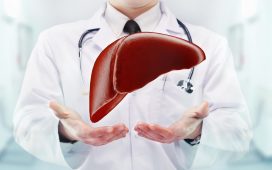Based on data from multiple sources, many opioid-overdose deaths seem to be suicides
WEDNESDAY, April 25, 2018 (HealthDay News) — Patients with opioid use disorder (OUD) seem to have a high rate of suicide, according to a perspective piece published in the April 26 issue of the New England Journal of Medicine.
Maria A. Oquendo, M.D., Ph.D., from the University of Pennsylvania in Philadelphia, and Nora D. Volkow, M.D., from the National Institute on Drug Abuse in Bethesda, Md., discuss the role of suicide in opioid overdose deaths.
The researchers note that patients with chronic pain and those with mood disorders are more likely to receive opioid prescriptions and are also at greater risk for suicide. Between 1999 and 2014, the proportion of suicides that were opioid overdoses increased from 2.2 to 4.3 percent, with the highest increase among those aged 45 to 64 years. Data from multiple sources strongly suggest that a considerable proportion of opioid-overdose deaths are suicides. Based on data from the National Death Index and electronic health records, suicide risk was 87 per 100,000 among persons with OUD, six times that of people in the general U.S. population. Efforts should be made to change opioid prescribing practices and to expand treatment for people with OUD. In addition, interventions could be tailored to reduce opioid-overdose deaths. Education campaigns to increase public awareness of suicide risks could engage family and friends in interventions to prevent suicidal overdoses by getting medical assistance.
“These two epidemics are intermingled, and solutions to address the opioid crisis require that we tailor interventions to preventing opioid-overdose deaths due to suicidal intent,” the authors write.
Copyright © 2018 HealthDay. All rights reserved.








